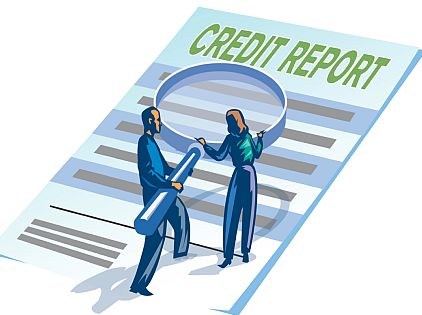Good news on the credit front as homebuyers are hitting record-high scores.
“New mortgages for purchasing homes are churning out at a fast clip, with the borrowers getting those loans having some of the highest credit scores ever,” said CNBC. But what if you don’t have a killer score?
“In a perfect world, you’d have a robust credit score and a 20 percent down payment in hand, with mortgage lenders falling all over themselves to get your attention,” said Geoff Williams on US News. “But what if your world is a little dinged? What if your credit score is shabby, your bank manager cringes when he sees you and debt collectors are the ones vying for your attention?
Here are a few options that might still allow you to buy a house with bad credit.
FHA loans
First-time buyers often turn to loans from the Federal Housing Administration (FHA) because of their looser requirements – down payments of just 3.5 percent and lower credit scores than what’s required for many conventional loans.
“If you can’t get a conventional mortgage through a mortgage lender, this is the most typical, logical path for a prospective homeowner with bad credit, said US News. “These are loans offered through lenders approved by the FHA, a government agency within the U.S. Department of Housing and Urban Development, or HUD. You can likely get approved for an FHA loan with a credit score of as low as 580, provided you have enough money saved for a 3.5 percent down payment.” Those with credit scores that are even lower than 580 still might be in the running for an FHA loan. “According to HUD’s website, your credit score can be as low as 500 — if you can furnish a 10 percent down payment.”
Rent to own
It may not be the traditional way to go, but rent-to-own programs can help you purchase a house down the line if you’re not ready for a traditional mortgage now.
“A rent-to-own deal offers prospective buyers an opportunity to settle into a home they want to purchase while they continue to save for a down payment, improve their credit score, or wait for a negative factor on their credit report – such as a foreclosure or a collection – to fade into the past,” said Realtor.com. “Rent-to-own agreements vary in their exact terms, but generally the property owners and renters sign a contract in which the renter agrees to rent the property for a specified time, typically one to three years. During that time, the renters usually pay an above-market rent, with the excess rent credited toward a down payment when the contract ends. The contract typically sets a price for the home at the end of the lease.”
Seller financing
If a seller isn’t excited about a rent-to-own scenario, they might still be able to help you meet your homebuying goal, if “the real estate stars…align just right,” said US News.
“Seller financing is occasionally done when the seller’s own mortgage has been paid off, or if it can be paid off using the buyer’s down payment. Instead of paying the bank a mortgage payment every month, you’re paying the seller directly, often until your credit is restored enough to where you can refinance with a traditional mortgage lender.”
Hard money loan
A hard money loan may be a last resort for those who are desperate to buy a home. Because of the higher interest rate (expect to pay a premium—current hard money rates we saw online started at 10 percent, plus as many as 10 upfront points for a loan fee), it doesn’t work for many people. According to Sun Pacific Mortgage, some reasons buyers would seek a hard money loan include:
- You won’t qualify for a loan because of your credit score or a recent bankruptcy.
- “The property or home you are buying does not qualify for an FHA or other conventional loan in that it needs some renovating/fixes.”
- You need to get your hands on a large loan without the typical wait.
“Need a fast loan, had a recent bankruptcy, foreclosure, bad credit or difficult-to-prove income due to self employment? Then Hard Money is for you,” they said.
Credit repair
If you have some time before applying for your loan, your best bet might be improving your credit to get into a better position to buy. This can take several months or longer, depending on how much work you have to do to take care of delinquencies, have errors removed from your credit report, etc.
Even small changes to your score can make a difference in your approval status and the interest rate you’re offered.
“Most lenders have carved-in-stone rules about handing out the best terms, and those rules almost always place a major emphasis on your credit score,” said Bankrate. “If their best rates are offered to borrowers with a score of 700 or higher and yours is a 698, those two points could cost you thousands of dollars. According to MyFICO.com, the consumer website of popular scoring model FICO, the interest rate difference between those two scores is about one-third of a percentage point. On a $165,000 30-year fixed-rate mortgage, that difference could cost you more than $13,378 in interest charges, assuming a 4.5 percent interest rate with a 700 credit score and a 4.875 percent rate on a 698 score.”
The first step in fixing your credit is knowing what you’re dealing with. “By law, you’re entitled to free credit reports from each of the three credit bureaus each year,” said About.com. This yearly free credit report is available only through AnnualCreditReport.com.”
Once you’ve reviewed the reports, you can make a plan.


